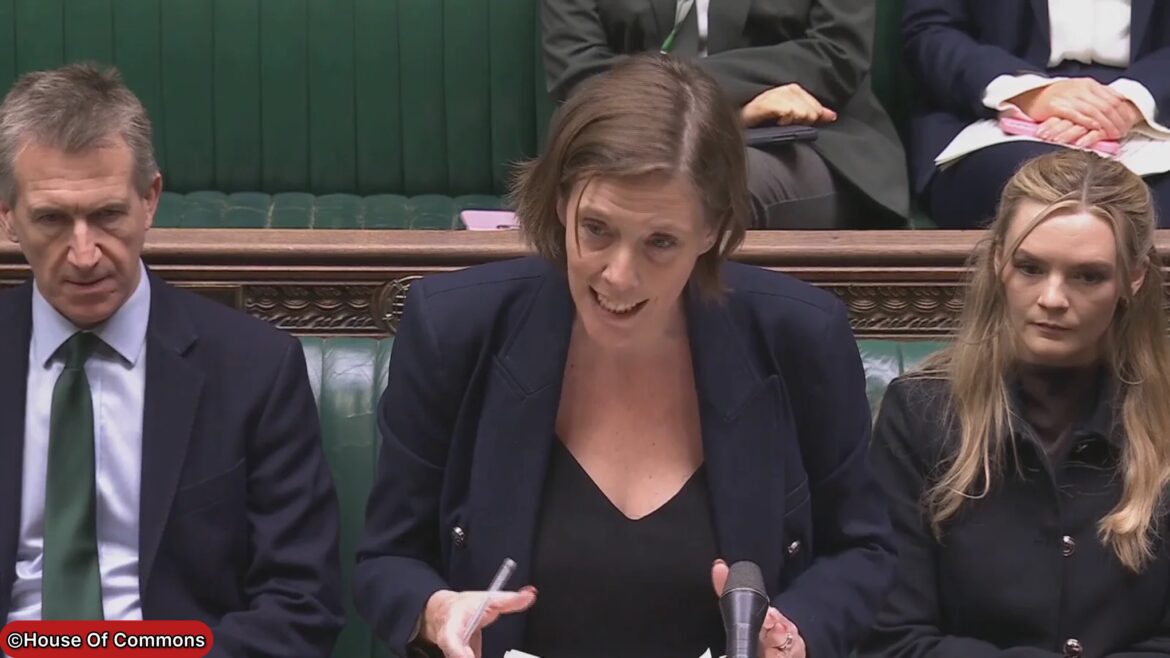The Government’s handling of the grooming gangs inquiry has come under fire after two abuse survivors walked away from an official advisory panel, accusing ministers of creating a “toxic” atmosphere and attempting to silence victims.
Safeguarding Minister Jess Phillips faced a bruising session in the Commons after Shadow Home Secretary Chris Philp launched an attack on Labour’s approach, demanding the appointment of a senior judge to lead investigations into decades of institutional failure.
The clash came just 24 hours after Fiona Goddard and Ellie Reynolds, both survivors of grooming gang abuse, publicly announced their departures from the Home Office’s liaison panel.
Opposition Accuses Starmer of “Disgraceful” Smears
Philp didn’t hold back in his criticism of the Prime Minister, referencing comments Starmer made in January when pressure first mounted for a comprehensive national inquiry.
The Shadow Home Secretary reminded MPs that Starmer had dismissed calls for investigations as people “jumping on a far-right bandwagon” – language Philp described as not just wrong, but actively harmful.
That kind of rhetoric is exactly what allowed these crimes to continue for so long,” Philp told the Commons, arguing that fears of being labelled racist had prevented authorities from confronting organised child sexual exploitation.
He pointed out the uncomfortable reality that predominantly Pakistani heritage men had systematically targeted white working-class girls, and that political correctness had enabled a massive cover-up.
Survivors Feel “Gagged” by Government Process
Reading directly from the resignation statements of both women, Philp painted a damning picture of how the inquiry process was being managed.
Goddard had written of “secretive conduct” that made survivors feel controlled rather than consulted, creating an environment where victims feared speaking freely.
Reynolds had gone further, directly accusing the Government of deliberately broadening the inquiry’s scope to avoid confronting the “racial and religious motivations” that characterised these crimes.
Most explosively, Goddard stated she refused to be “gagged and controlled” whilst the Government turned what should be a truth-seeking process into yet another establishment whitewash.
Philp demanded the Minister apologise to both women and take immediate steps to restore confidence in the inquiry.
Phillips: Victims Don’t All Think Alike
The Minister’s response took a markedly different tone, pushing back against suggestions that the two resignations represented the views of all survivors.
Phillips cautioned MPs against treating abuse victims as though they all shared identical perspectives on how investigations should proceed.
“These are individuals with their own views, their own preferences about publicity, their own feelings about anonymity,” she argued, suggesting the departed advisers didn’t speak for everyone.
She insisted the Government hadn’t silenced anyone, pointing out that a charity representing victims – not Whitehall – had been managing the consultation process.
Phillips confirmed she’d maintained regular contact with Goddard and remained willing to continue those conversations.
Why No Judge?
On the crucial question of judicial leadership, Phillips mounted a defence based on Baroness Casey’s own recommendations.
Casey, who conducted the rapid audit that exposed continuing institutional failures, had explicitly told parliamentary committees she didn’t want a traditional judge-led format.
The Minister then delivered what she clearly saw as a knockout argument: name one institution that didn’t catastrophically fail these girls.
The courts themselves had removed children from homes where they were being abused, sometimes prosecuting victims for crimes they committed whilst being exploited, Phillips reminded MPs.
With that track record, why would a judge-led inquiry be any better than what failed before?
“I’m Listening to Everyone”
Phillips attempted to strike a conciliatory tone, promising to meet with “many victims” and insisting she valued all survivor voices equally.
Whether they served on official panels or spoke to journalists, whether they agreed with Government policy or not, the Minister pledged to keep listening.
She concluded by reaffirming Labour’s commitment to implementing Casey’s recommendations in full, describing grooming gang crimes as among the most horrific imaginable.
The decade-plus of institutional inaction exposed by the audit would not be repeated, Phillips vowed.
Deeper Questions Remain
The exchanges highlighted fundamental disagreements that go beyond partisan politics.
Should inquiries be led by judges from a court system that failed victims, or by other figures who might bring fresh perspectives?
Can the ethnic and religious dimensions of these crimes be honestly examined without stigmatising entire communities?
Are survivors being given genuine agency or simply window-dressing for a predetermined process?
Most troublingly, do the resignations of Goddard and Reynolds signal that history is repeating itself – with another generation of victims finding their voices ignored by an establishment more concerned with managing optics than confronting uncomfortable truths?
The Government insists it remains focused on justice for victims and preventing future abuse.
But with respected campaigners walking away in protest, using words like “cover-up” and “gagged,” that message is clearly not landing with those it most needs to convince.
Follow for more updates on Britannia Daily



